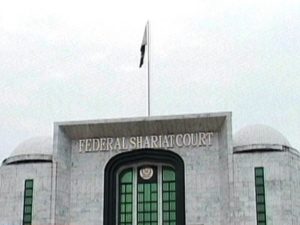
 What is the Right Definition of Sharīʿa: Medieval or Modern? In a recent interview aired on NPR, senior scholar Khaled Abou El Fadl disentangles historically-grounded definitions of sharīʿa from public misunderstandings of it. The problems fueling those popular misunderstanding are twofold. First, there is a conceptual problem. Most of the public does not know what sharīʿa means. On a basic level, he defines it as “the law of goodness,” which individuals must struggle to interpret in a way that brings that ideal to reality in their own lives and laws. Second, there is a political fear. The policies that some individuals fear from sharīʿa are artifacts of medieval applications of it that today are simply not feasible or effective, even for Muslims. With that idea in mind, Abou El Fadl separates the conceptual definition of sharīʿa from its violent image, and points out the modern failures of the states and non-state actors that perpetuate certain medieval policies, which sometimes inform this violent conceptualization. In doing so, he illustrates the fallacy of fearing sharīʿa itself and instead invites listeners to learn more about sharīʿa. Read more. Image credit: NPR
What is the Right Definition of Sharīʿa: Medieval or Modern? In a recent interview aired on NPR, senior scholar Khaled Abou El Fadl disentangles historically-grounded definitions of sharīʿa from public misunderstandings of it. The problems fueling those popular misunderstanding are twofold. First, there is a conceptual problem. Most of the public does not know what sharīʿa means. On a basic level, he defines it as “the law of goodness,” which individuals must struggle to interpret in a way that brings that ideal to reality in their own lives and laws. Second, there is a political fear. The policies that some individuals fear from sharīʿa are artifacts of medieval applications of it that today are simply not feasible or effective, even for Muslims. With that idea in mind, Abou El Fadl separates the conceptual definition of sharīʿa from its violent image, and points out the modern failures of the states and non-state actors that perpetuate certain medieval policies, which sometimes inform this violent conceptualization. In doing so, he illustrates the fallacy of fearing sharīʿa itself and instead invites listeners to learn more about sharīʿa. Read more. Image credit: NPR
 CASE COMMENTARY: Pakistan’s Federal Shariat Court Expands its Jurisdiction through the Protection of Women Act 2006 Guest contributor Noor Zafar argues that the Federal Shariat Court of Pakistan used Pakistan’s Protection of Women Act of 2006 as part of its efforts to broaden its jurisdiction. To do so, it sought to redefine Islamic criminal law in that country: the body of law called hudud crimes. Ostensibly, the Court used a new definition of crime to regain some of the control it had under the Hudud Ordinances of 1979. But the effects were broader. The crime-redefinition created Federal Shariat Court with an expansive jurisdiction over civil and criminal law. Read more. Image credit: The Express Tribune
CASE COMMENTARY: Pakistan’s Federal Shariat Court Expands its Jurisdiction through the Protection of Women Act 2006 Guest contributor Noor Zafar argues that the Federal Shariat Court of Pakistan used Pakistan’s Protection of Women Act of 2006 as part of its efforts to broaden its jurisdiction. To do so, it sought to redefine Islamic criminal law in that country: the body of law called hudud crimes. Ostensibly, the Court used a new definition of crime to regain some of the control it had under the Hudud Ordinances of 1979. But the effects were broader. The crime-redefinition created Federal Shariat Court with an expansive jurisdiction over civil and criminal law. Read more. Image credit: The Express Tribune
 CASE DOCUMENT: Protection of Women Act 2006 (Pakistan) In response to international criticism of the 1979 Hudood Ordinance, which set forth harsh penalties for criminal law violations, the Pakistani parliament enacted the Protection of Women Act ten years ago. That aftermath is relevant once again with the protests against recent legislation called the Punjab Protection of Women against Violence Act. The first Act removed the crimes specified in the Hudood Ordinance from the Federal Shariat Court(FSC)’s exclusive jurisdiction. This move set off a flurry of petitions, one of which claimed that the Act itself was unconstitutional, because Pakistan’s constitution deferred to the FSC for judgment of Islamic criminal law in Pakistan. As a result, theFSC expanded its jurisdiction. The question that now arises with the new Act is whether the FSC’s jurisdiction extends to the new Act, and how it will respond to the protestors claiming that the new legislation is in violation of Islamic law. Read more. Image credit: Dawn
CASE DOCUMENT: Protection of Women Act 2006 (Pakistan) In response to international criticism of the 1979 Hudood Ordinance, which set forth harsh penalties for criminal law violations, the Pakistani parliament enacted the Protection of Women Act ten years ago. That aftermath is relevant once again with the protests against recent legislation called the Punjab Protection of Women against Violence Act. The first Act removed the crimes specified in the Hudood Ordinance from the Federal Shariat Court(FSC)’s exclusive jurisdiction. This move set off a flurry of petitions, one of which claimed that the Act itself was unconstitutional, because Pakistan’s constitution deferred to the FSC for judgment of Islamic criminal law in Pakistan. As a result, theFSC expanded its jurisdiction. The question that now arises with the new Act is whether the FSC’s jurisdiction extends to the new Act, and how it will respond to the protestors claiming that the new legislation is in violation of Islamic law. Read more. Image credit: Dawn
See the full newsletter.

